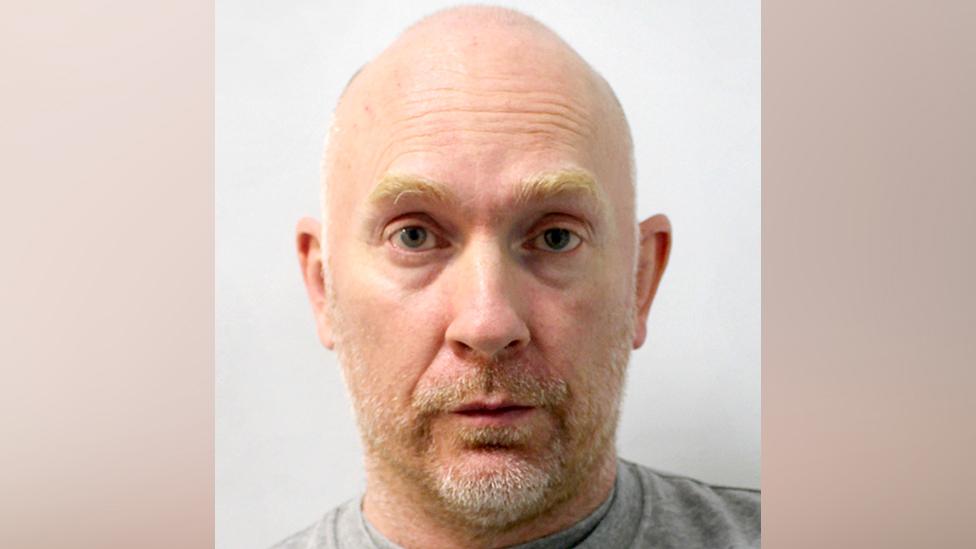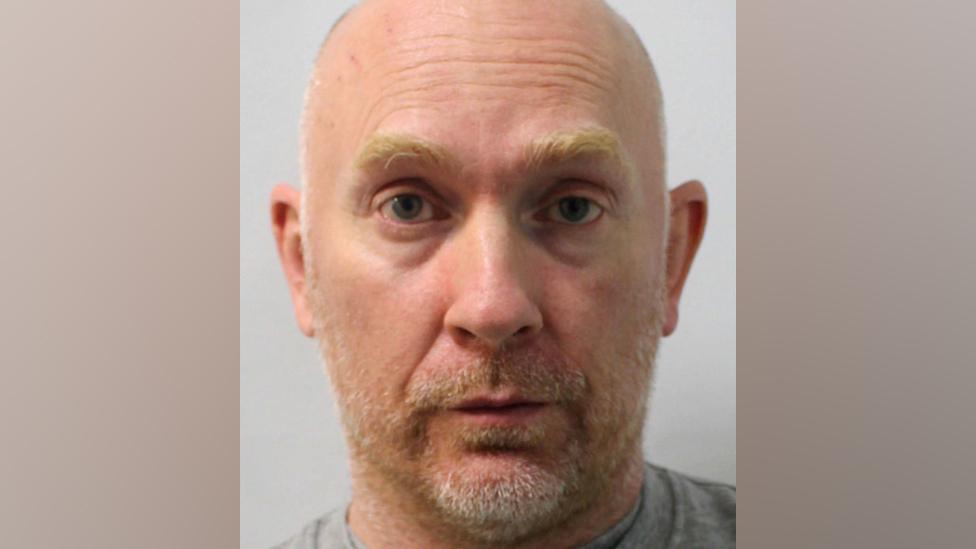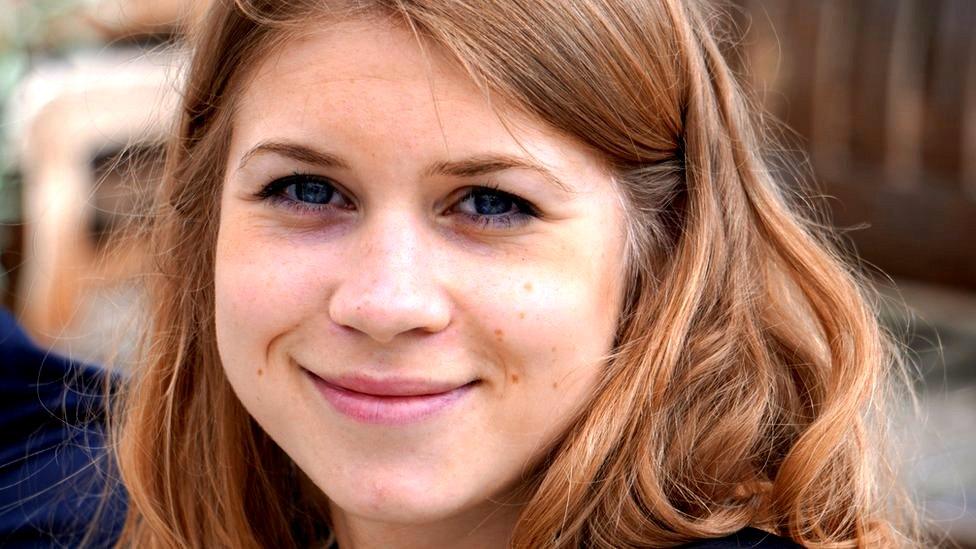Wayne Couzens: Police misconduct cases over indecent exposure reports
- Published

Wayne Couzens, who will never be freed from prison, is due to be sentenced next month for indecent exposure
Two police officers face misconduct cases over the handling of indecent exposure reports against Wayne Couzens, the former Met Police officer who murdered Sarah Everard.
On Monday, Couzens admitted three offences, including exposing himself at a drive-through four days before he abducted Ms Everard on 3 March 2021.
A Met officer, who quit in 2022, has a case to answer for gross misconduct.
And a sergeant from the Kent force will face a misconduct meeting.
Couzens, 50, is serving a whole-life sentence for the kidnap, rape and murder of 33-year-old Ms Everard, whom he snatched from the street while she was walking home in south London.
The guilty pleas made on Monday related to three incidents in Kent - two offences at a fast-food restaurant in February 2021, and another at woodland in Deal in November 2020.
The Independent Office for Police Conduct (IOPC) carried out two investigations and has released the findings following the conclusion of the criminal case.
The first, which has resulted in a Met police constable facing gross misconduct allegations, looked into whether procedures like CCTV gathering, vehicle checks and collecting evidence were carried out properly.
Investigators were interested in a week-long period starting on 3 March 2021, the day the officer first visited the restaurant to carry out inquiries, and ending when the operation was taken over by another team.
By the time Ms Everard was kidnapped, the Met's indecent exposure investigation had not uncovered Couzens' occupation.
He was arrested on 9 March on suspicion of abduction and was charged with murder shortly after.

Indecent exposure leads to sentences ranging from a fine through to two years in jail.
Had Wayne Couzens been convicted for any of the incidents (the earliest allegation dates back to 2015) he would probably have been imprisoned because his role as a serving police officer would have been an aggravating factor.
He would have been thrown out of the uniform before he could abuse his position and powers to kidnap, rape and murder Sarah Everard.
Even if he had only been identified for the 2021 exposures, that would have been enough to suspend him in the immediate period before he killed.
The IOPC's investigation was limited to allegations of individual failures, but a separate inquiry set up by the Home Office will consider what three police forces knew - or could have known - and when.
The awful truth now appears to be that Couzens was following a path of escalating sexual violence. And that is why these offences are so important in establishing whether Couzens could have been stopped.

The officer accused of misconduct resigned and left the organisation in 2022, the Met said in response to the IOPC. The independent hearing will go ahead "as soon as possible", despite the officer no longer being employed by the force.
BBC News asked the Met, IOPC and Home Office whether the officer was currently employed by another police force but none would provide further information.
The conduct of another Met officer was also looked into by the IOPC, but it was found they had no case to answer.
The sergeant in Kent is alleged to have breached professional standards in relation to a June 2015 incident in Dover. A man reportedly exposed himself to a pedestrian in a vehicle "identified as belonging to Couzens", the IOPC said.
This incident is not one which Couzens pleaded guilty to this week but the IOPC investigation into how that matter was handled began in May 2021.
It found no evidence to suggest Couzens was identified as a police officer or that he was spoken to by police.
The IOPC said the sergeant has a "case to answer for misconduct for alleged failures in following all reasonable lines of inquiry before the case was closed".
Assistant chief constable of Kent Police Tracey Harman said the force referred itself to the watchdog over the 2015 indecent exposure allegation.
She confirmed no arrests were made as part of the investigation at the time.
On both 14 and 27 February 2021, Couzens exposed his genitals to staff at the drive-through restaurant and is said to have looked straight at the workers while sitting in his car as he paid for his food.
The second offence happened four days before he used his position to trick Ms Everard into his car.
The IOPC said it was now up to the Metropolitan and Kent police forces to organise disciplinary proceedings and consider the evidence to decide whether the allegations against the officers are proven or not.
Couzens is due to be sentenced for the indecent exposure offences on 6 March.
Three remaining counts Couzens faced will not be pursued by the prosecution and will be left on file, the Old Bailey heard on Monday.
An independent inquiry, external led by Dame Elisha Angiolini is looking at Sarah Everard's murder and will consider the exposure incidents as part of an analysis of whether any opportunities to prevent it were missed.

Follow BBC London on Facebook, external, Twitter , externaland Instagram, external. Send your story ideas to hellobbclondon@bbc.co.uk
- Published13 February 2023

- Published29 July 2022

- Published30 September 2021
